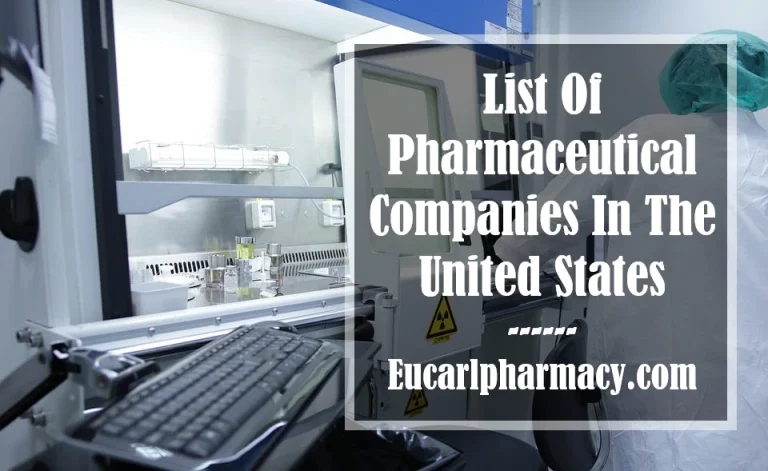Basic Admission Requirements for Studying Pharmacy in Nigeria
You have probably heard about the course Pharmacy and you are wondering what it entails, the areas you can work in after graduation as a pharmacist, and how to get started. No more worries because this article is going to help you in your decision-making and also provide you with the admission requirements for studying pharmacy in Nigeria.
What is Pharmacy
Pharmacy is the science and art concerned with the preparation and standardization of drugs. Pharmacy is also the art and practice of preparing, preserving, compounding, and dispensing medical drugs. There are different departments in pharmacy that pharmacists can specialize in as they advance on the career ladder and they include: Clinical Pharmacy and Pharmacy Management, Pharmaceutical and Medicinal Chemistry, Pharmaceutical Microbiology and Biotechnology, Pharmaceutics and Pharmaceutical Technology, Pharmacology and Toxicology, and Pharmacognosy.
Pharmacists are medicine experts and are essential members of the healthcare team. Other healthcare professionals trust their ability to assess prescriptions and recommend the best combination of medicines to be used on patients.

Types of Pharmacy
Pharmacists are not confined to hospital practice alone as there are different fields where they can function effectively. these includes: Hospital Pharmacy, Community pharmacy, Administrative Pharmacy, Research, Academia, Industrial Pharmacy, and Regulatory Pharmacy.
Hospital Pharmacist
Drug dispensing is not the only function that hospital pharmacists perform but they carry out holistic pharmaceutical care. They serve as sources of information, counseling patients on drug usage, adherence, contraindications, and potential side effects.
A hospital pharmacist also works closely with other health professionals to ensure an optimized medication regimen for each patient in order to achieve the best results, participates in hospital ward rounds to take patient drug histories, and assesses patient responses. They are well equipped to answer questions about medicines from within the hospital and the general public.
Hospital pharmacists compound medications for individualized dosing and make sure medicines are stored appropriately. They also write drug use guidelines for use within the hospital
Academic Pharmacist
Pharmacists are needed in several spheres and people need to be trained to step in as others age in the profession. An academic pharmacist is charged with the responsibility of inspiring, educating, and training the next generation of pharmacists and other healthcare professionals whilst playing the role of mentors and role models.
Academic pharmacists also engage in research in any of the six departments in pharmacy and can work not only in universities but also in research institutes and other organizations.
Community Pharmacy
A community pharmacy is a healthcare facility under the direct supervision of a pharmacist that provides pharmaceutical care to a specific community. A community pharmacist provides medications and health-related services to patients and the public.
They are involved in the dispensing of over-the-counter and prescription medicines to the public. Community pharmacists dispense medicines to patients after reviewing prescriptions from doctors to ensure accuracy and suitability for the patient, putting into consideration dosage, dosing frequency and duration, drug interactions, and side effects.
They also provide drug information and counseling to patients on the proper use of their medications and the need for compliance.
Research Pharmacist
A research pharmacist investigates new pharmaceuticals and drugs being developed. They are responsible for setting up and managing all pharmaceutical aspects of clinical drug trials to ensure the safe, effective, and ethical use of investigational drugs. Research Pharmacists prepare, administer, and maintain records for all drug products used in clinical drug trials.
Research can also be done on pharmacogenomics and pharmacodynamics by some hospital research pharmacists to improve the effectiveness of drugs in the body.
Other Types of Pharmacy Practice:
- Clinical Pharmacy
- Industrial Pharmacy
- Compounding Pharmacy
- Consulting Pharmacy
- Ambulatory Care Pharmacy
- Regulatory pharmacy
- Home care pharmacy
Areas of Specializations in Pharmacy
Pharmacists can specialize in different areas during higher learning such as in a master’s degree or Ph.D., these specialization helps increase one’s proficiency in the chosen area of practice. these areas include:
- Psychopharmacotherapy
- Pediatric pharmacy
- Oncology pharmacy
- Nutritional support pharmacy
- Nuclear pharmacy
- Geriatric pharmacy
- Personal pharmacy
- Hospice pharmacy
- Pharmacy benefit manager
- Poison control pharmacy
If the above sounds like what you would love to do, then you need to know the basic requirements to get your journey started.
Basic Requirements To Study Pharmacy in Nigerian Universities
O’Levels Subject Requirement
A minimum of credit in five subjects in the Senior Secondary School Certificate Examination(SSCE). These subjects include English Language, Mathematics, Physics, Chemistry, and Biology.
Now you have your O’Levels sorted, the next step is to register for your Unified Tertiary Matriculation Examination(UTME). It is necessary to make the right choice of subjects and prepare adequately to smash them.
UTME Subject Combination Requirement
The JAMB UTME subject combination for Pharmacy includes English Language, Physics, Chemistry, and Biology. Then registration is done and dusted? It is not yet time to relent. You have to put in the work to study very well for your exams. There are so many materials online and hard copies that can help you with your preparation in order to get a high score as the course is generally very competitive.
The JAMB gives a general cut-off mark for universities but, the cut-off mark for Pharmacy varies from university to university and it is usually way higher than the general cut-off mark. It could range from 220 to 280 depending on the university, so have this in mind as you prepare.
Voila! JAMB score reads 300 and you feel it is time to relax, but not yet! POST-UTME still has to be written and you have to do so well to get admitted, remember it is a competitive course.
Post-UTME Requirement
The subject combination for the Post-UTME varies from one university to the other. Hence, it is advisable that you look out for past questions from your chosen university. Some of these schools include Mathematics as one of the subjects.
A very good score in the Post-UTME organized by your chosen University coupled with a wonderful JAMB UTME score will have your name placed on that admission list.
List of Universities Offering Pharmacy Programs in Nigeria
Note: Not all Nigerian universities are approved to offer this course. Currently, 20 universities in Nigeria are approved by PCN to offer Pharmacy and more are being approved, the approved ones are:
1. Obafemi Awolowo University, Ile-Ife, Osun state.
2. University of Ibadan, Ibadan,Oyo State.
3. Ahmadu Bello University, Zaria, Kaduna State.
4. University of Nigeria, Nsukka, Enugu State.
5. University of Jos, Plateau State.
6. UniversityofLagos, Lagos state.
7. Olabisi Onabanjo University, Sagamu, Ogun State.
8. University of Uyo, Uyo, Akwa Ibom State.
9. University of Benin, Benin City, Edo State.
10. Niger Delta University, Wilberforce Island, Bayelsa State.
11. NnamdiAzikiweUniversity, Awka,Anambra state.
12. University of Maiduguri, Maiduguri, Borno State.
13. MadonnaUniversity,Elele,RiversState.
14. Igbinedion University, Okada, Edo State.
15. University of Port Harcourt, Port Harcourt, Rivers State.
16. Usmanu Danfodiyo University, Sokoto, Sokoto State.
17. KadunaStateUniversity, Kaduna State.
18. University of Ilorin, Ilorin, Kwara State.
19. Gombe State University, Gombe, Gombe State.
20. Delta State University, Abraka, Delta State.
The following pharmacy schools are yet to be accredited.
21. Bayero University (BUK) Kano, Kano State
22. Enugu State University of Science and Technology (ESUT) Agbani Campus, Enugu State
23. Chukwuemeka Odumegwu – Ojikwu University (COOU), Igbariam Campus Anambra State.
24. University of Calabar, Calabar, Cross River State
For full details, read: Full List of Universities Offering Pharmacy in Nigeria
Pharmacy Degree Programs
There are two different pharmacy degree programs available in the universities approved to offer pharmacy in Nigeria.
The Bachelor of Pharmacy (B.Pharm) program and
The Doctor of Pharmacy (Pharm. D) program
In some countries, the Pharm.D degree is the minimum degree required to practice as a Pharmacist. In Nigeria currently, the minimum degree required to practice as a Pharmacistis BPharm.
As pharmacy practice continues to evolve to be more clinically inclined the need to incorporate the Pharm.D Program has become necessary as other universities has followed in the footsteps of the University of Benin, implementing the Pharm. D program. These universities include the University of Ibadan, Bayero University, Kano, University of Nigeria, Nsukka, University of Jos, and the University of Ilorin.
Duration of Study
It takes five(5) years to undergoa B.Pharm training program (4years for Direct Entry applicants) and six(6) years for a Pharm.D program (5years for Direct Entry candidates).

![Current Price of Amoxicillin in Nigeria ([year]) Price Of Amoxicillin In Nigeria](https://eucarlpharmacy.com/wp-content/uploads/2023/08/Price-of-Amoxicillin-in-Nigeria-768x536.jpg)

![Complete Alliance in Motion Global Price list ([year]) Alliance in Motion Global Price List](https://eucarlpharmacy.com/wp-content/uploads/2023/04/AIM-Price-list-768x432.jpg)

![Current Price of Pregnacare Plus in Nigeria ([year]) Price of Pregnacare Plus in Nigeria](https://eucarlpharmacy.com/wp-content/uploads/2023/03/Price-of-Pregnacare-Plus-in-Nigeria.webp)
![Current Price of Appeton Weight Gain in Nigeria ([year]) Price of Appeton Weight Gain in Nigeria](https://eucarlpharmacy.com/wp-content/uploads/2023/03/Price-of-Appeton-Weight-Gain-in-Nigeria.png)